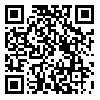Volume 3, Issue 4 (December 2018)
J Environ Health Sustain Dev 2018, 3(4): 645-649 |
Back to browse issues page
Download citation:
BibTeX | RIS | EndNote | Medlars | ProCite | Reference Manager | RefWorks
Send citation to:



BibTeX | RIS | EndNote | Medlars | ProCite | Reference Manager | RefWorks
Send citation to:
Khashij M, Pakdaman M, Mehralian M, Abtahi M, Mokhtari M. Cost- Effectiveness Analysis of Infectious Waste Treatment Devices in Hospital
. J Environ Health Sustain Dev 2018; 3 (4) :645-649
URL: http://jehsd.ssu.ac.ir/article-1-137-en.html
URL: http://jehsd.ssu.ac.ir/article-1-137-en.html
Environmental Science and Technology Research Center, Department of Environmental Health Engineering, Shahid Sadoughi University of Medical Sciences, Yazd, Iran.
Abstract: (3252 Views)
Introduction: Today, the infectious wastes of hospitals are considered as a public health problem. Considering the huge amounts of hazardous wastes and the disadvantages of incinerators, we need to investigate the non-combustible devices involved in biochemical treatment. This study was carried out with the aim of evaluating the cost-effectiveness of infectious wastes devices.
Materials and Methods: This descriptive-analytical study was conducted to evaluate the cost-effectiveness and economic efficiency of the infectious waste devices in Yazd and Isfahan hospitals. In this study, the total cost of infectious waste treatment systems in hospitals, the Incremental Cost Effectiveness Ratio (ICER), as well as the sensitivity rate for the reduction of infectious wastes were calculated using Treeage software version 2011. In order to calculate the cost effectiveness using the total cost and the amount of produced waste, we applied the discount rate of five percent and the useful life of 10 years for each device.
Results: Based on the results, devices A and F had the highest and the lowest total cost, respectively. In addition, autoclave D with an ICER of 257.20 was more cost effective than other devices. So, device D, with a discount rate of ±5 and a range of 244.244 - 270.06 was chosen as the best option for infectious waste disposal.
Conclusion: The results can be used to explore and outline the future prospects for choosing the best technology for treatment of infectious waste in hospitals. In other words, we have different options on different circumstances and occasions.
Materials and Methods: This descriptive-analytical study was conducted to evaluate the cost-effectiveness and economic efficiency of the infectious waste devices in Yazd and Isfahan hospitals. In this study, the total cost of infectious waste treatment systems in hospitals, the Incremental Cost Effectiveness Ratio (ICER), as well as the sensitivity rate for the reduction of infectious wastes were calculated using Treeage software version 2011. In order to calculate the cost effectiveness using the total cost and the amount of produced waste, we applied the discount rate of five percent and the useful life of 10 years for each device.
Results: Based on the results, devices A and F had the highest and the lowest total cost, respectively. In addition, autoclave D with an ICER of 257.20 was more cost effective than other devices. So, device D, with a discount rate of ±5 and a range of 244.244 - 270.06 was chosen as the best option for infectious waste disposal.
Conclusion: The results can be used to explore and outline the future prospects for choosing the best technology for treatment of infectious waste in hospitals. In other words, we have different options on different circumstances and occasions.
Type of Study: Original articles |
Subject:
Special
Received: 2018/07/25 | Accepted: 2018/10/20 | Published: 2018/12/20
Received: 2018/07/25 | Accepted: 2018/10/20 | Published: 2018/12/20
| Rights and permissions | |
 |
This work is licensed under a Creative Commons Attribution-NonCommercial 4.0 International License. |








